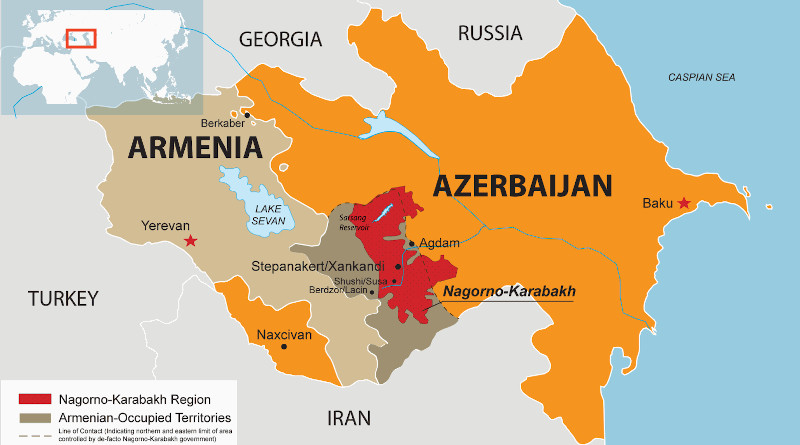Post-1994 Armenian-Azerbaijani Status Quo No Longer Exists – OpEd
By Paul Goble
The status quo of the Karabakh conflict that had been in place since 1994 is no more, Yevgeny Krutikov says. As a result of Azerbaijani territorial gains in “the security zone,” the areas of Azerbaijan beyond Karabakh that Armenia had occupied, “the former political and even military situation in the South Caucasus has been changed.”
“And as of now, that is the chief victory of Azerbaijan in [this fall’s] 12-day war about Karabakh,” the Moscow security affairs analyst says, leaving Baku in a far stronger position both militarily – it can chip away at the security zone again and again – and diplomatically because it has demonstrated its capacity and will to do so (vz.ru/world/2020/10/14/1065383.html).
Armenia is the big loser because it had assumed that the status quo, supported by the West, was forever and failed over the course of the last quarter century to “somehow legalize the situation.” Once Azerbaijan was prepared to challenge Yerevan’s control of the districts beyond Karabakh, that assumption proved hollow.
Some even in Baku consider anything short of the expulsion of Armenians from Azerbaijani territories up to the internationally-recognized border between the two countries less than a victory and even a defeat. But Krutikov says, there is “every reason” to think that Baku at least now was not seeking that outcome.
Instead, Krutikov argues, Azerbaijan was seeking “revenge for the 1988-1994 war” by proceeding in the following way: carrying out a series, possibly separated by years, of “local military clashes of the type which have taken place now, the goal of which is the destruction of the Armenian ‘security zone’” and the advance of Azerbaijani forces to the borders of Nagorno-Karabakh and “the generally recognized border” between the two countries.
Baku calculates that such salami tactics will work better because such smaller conflicts will not lead to a wider war and bring in outside forces. That is probably true, Krutikov says. It also calculates that the loss of the zone will make Armenia more agreeable about returning Karabakh. That is almost certainly false.
“The deterioration of the situation at the front only united the Armenians, who until recently were prepared to shoot one another in the center of Yerevan,” Krutikov says, adding that “Yerevan considers that despite certain territorial losses,” its security zone played a useful role. “If it had not existed, Azerbaijani tanks would be standing in Stepanakert.”
Having lost some of the security zone and being at risk of losing more, however, Yerevan finds itself in a weakened position militarily and diplomatically, “despite its victory in the information sphere and in the European diplomatic direction,” the Russian security specialist concludes.
In the course of his essay, Krutikov calls attention to an important reality in Baku. The political leadership from the president down springs from Nakhichevan while the military command comes almost exclusively from Karabakh. That means for former looks at the Karabakh dispute more politically, while the latter take in personally.
All this means that the situation in the south Caucasus is likely to become more volatile, with new outbursts of fighting and the negotiations unsettled. Both possibilities require that outside powers devote more attention and resources to this conflict than they have in the past or face the prospect that the situation could spiral out of control.

